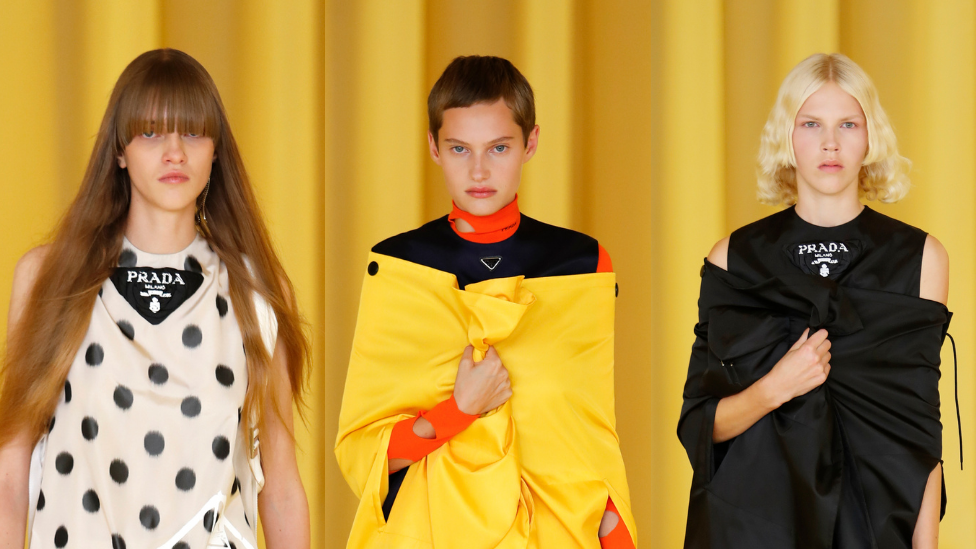By Cristina Criddle
Technology reporter
Fashion labels are designing outfits for video calls during the coronavirus pandemic.
A “waist-up” focus has been noticed at both Milan and London Fashion Weeks, with detailed necklines and relaxed trousers.
Prada placed its logo near the collars of its tops, and featured large coats pulled around shoulders like a blanket.
It said it was not inspired by Zoom, but by the “contemporary human relationship with technology”.
“Fashion is about reacting to reality,” said Miuccia Prada, head designer of Prada, at its virtual Milan fashion show. “During lockdown, I realised how important technology is and how it is impactful for us, and in some ways, an extension of ourselves.”
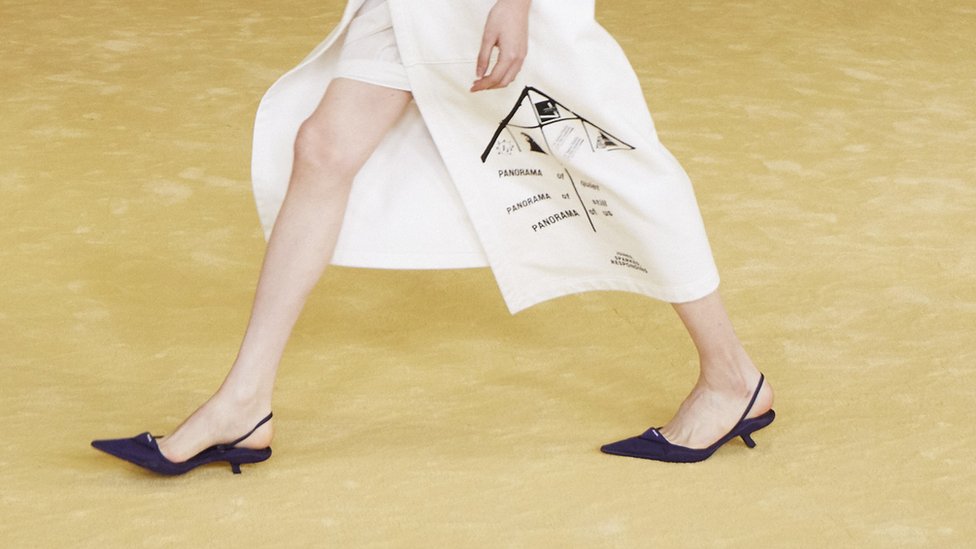
“The tunic tops and roll necks, with the brand’s famous triangle logo blown up and placed directly below the neckline, will certainly catch the eye of your fellow Zoomers,” Jane McFarland, fashion director at The Sunday Times, said of the collection.
“This year has been all about ‘waist-up dressing’. Having spent a lot of time on video conference calls, the top half of our outfit has become significantly more important than our bottom half.”
Luxury fashion sales worldwide are forecast to fall by around 35% this year, due to shops closing and lockdown, analysis by the Boston Consulting Group suggested.
But fashion is reflecting history and the economy through these clothing trends, said Lynne Coleman, textile expert.
“Designers are thinking about how we are living our lives. That’s why you see logos appearing in places you haven’t seen before,” she added.
“We’ve been stuck inside for so long now and we want to express ourselves.”
Fashion critics have noted jewellery has increased in popularity, while sales of handbags and shoes are down.
“Moving the logo up to the neck is a good way of keeping your brand out there and making a fashion statement,” said Deborah St Louis, founder of Fashions Finest, which represents emerging designer labels during London Fashion Week,
“People still want to appear professional, when working from home especially, but now we see a shift towards a more casual relaxed look.”
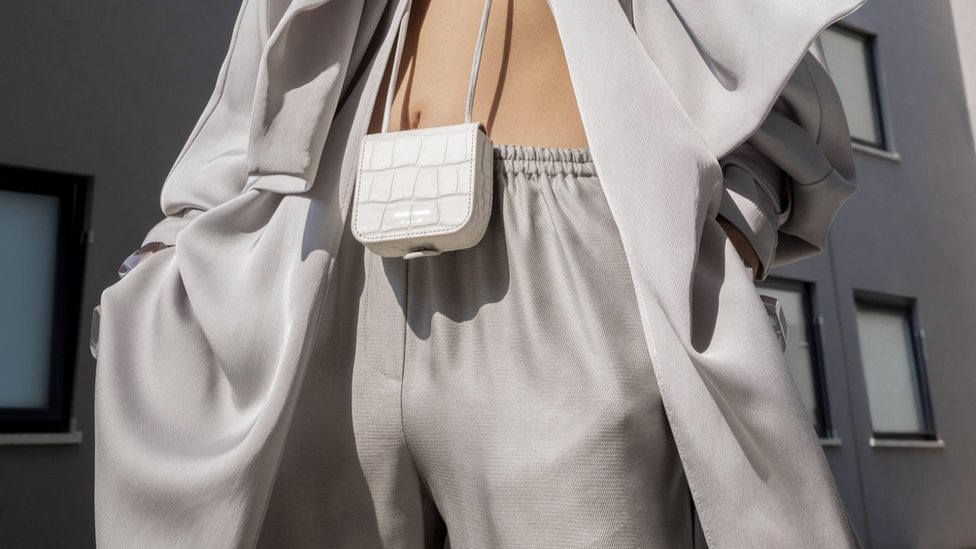
At Milan Fashion Week, designers also seemed influenced by remote working, with a trend for flatter shoes with a small heel, elasticated trousers, matching silk sets and pyjamas.
“I’ve never seen so many elastic and drawstring waists in my life,” said Lauren Indvik, fashion editor at the Financial Times. “All the stylists are talking about ‘waist-up’ dressing, because that’s all everyone sees these days.
“They have to inspire people to buy clothes, and there aren’t social occasions to dress up for, so maybe luxury at home is the new focus.”
Outside of leading fashion houses, smaller designers have also focused on comfort at home with their new ranges.
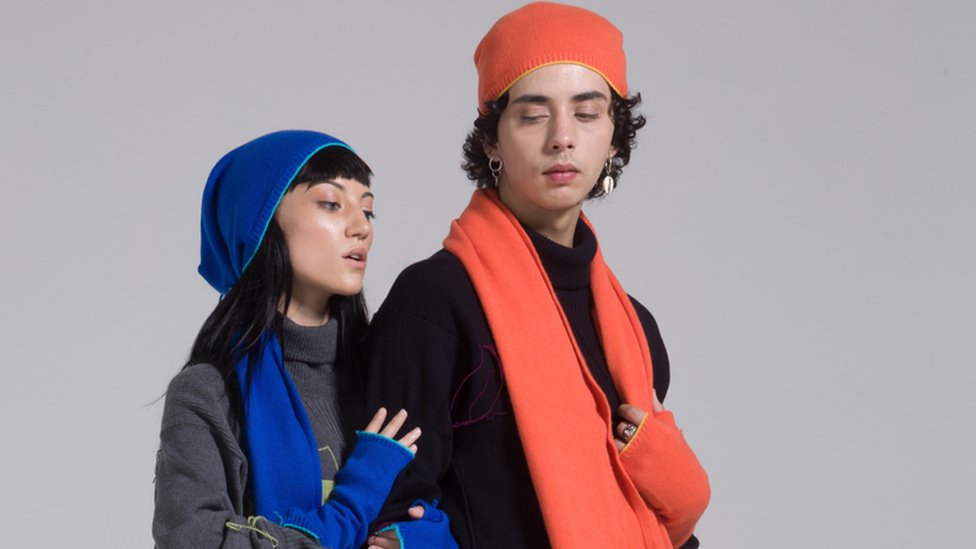
“I have created a cashmere collection, focusing on home comforts and pieces that have bold colour touches, especially from the shoulder up,” said fashion designer Valentina Karellas.
“I realised over the pandemic a lot more people were doing a lot more self-care, but still wanted to be stylish for their work or social calls.”
She has designed scarves, beanie hats and leg warmers, inspired by staying at home in lockdown.
“Clothing has always been used to signify status and social standing, which is difficult to manifest now that we have moved much of our interaction online,” said Sonal Keay, founder of fashion brand This Is Silk.
“The clothing industry has suffered from the pandemic, as people realised that they do not need to wear formal clothes as much.”
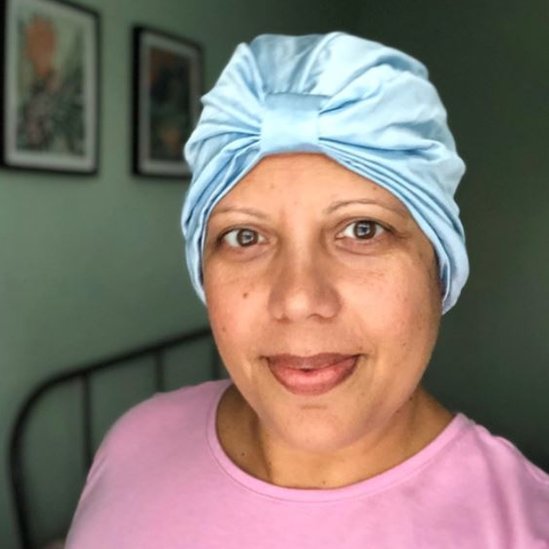
Mrs Keay says she’s seen an increase in demand for silk hair wraps – fabric used to tie up wet hair while it dries after showering.
“Sales have skyrocketed and people keep sending me snapshots of themselves on Zoom calls, wearing these wraps. It reduces frizz and is an art deco, glam statement.”

